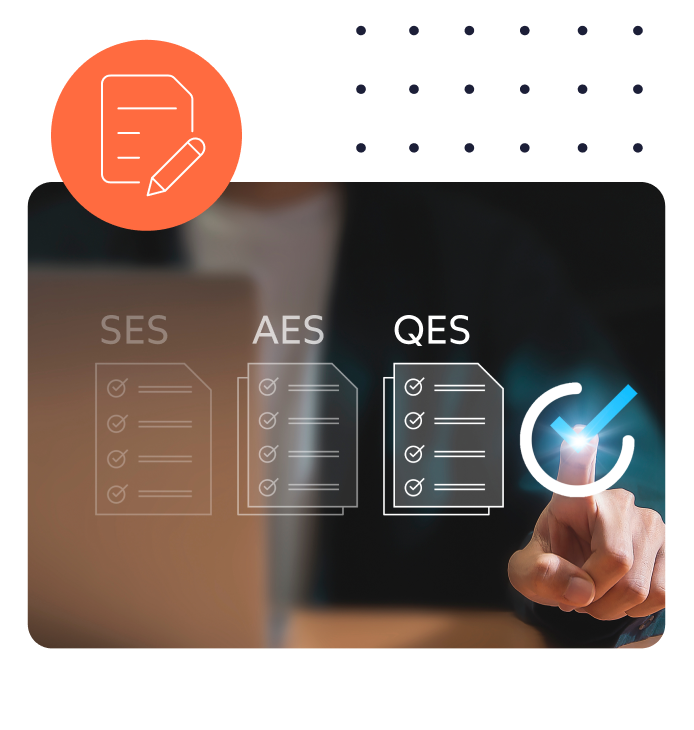Learn what NFTs (Non-Fungible Tokens) are standing for, what their potential is for businesses around the globe, and how regulations could apply to them to ensure solid KYC processes and prevent Identity Fraud and Money Laundering.
What are Non-Fungible Tokens (NFTs)?
An NFT is a digital asset that represents real-world objects like art, music, in-game items and videos. They are bought and sold online, and they are generally encoded with the same underlying software as many cryptocurrencies.
NFTs are being considered as non-interchangeable tokens stored on a blockchain, using blockchain technology (like crypto) or other forms of distributed ledger. The tokens can represent any form or data, from a picture or video to a digital asset in a video game. Due to their unique non-interchangeable traits, NFTs are often compared to traditional collectibles, like playing cards or artworks – just with the difference of being fully digital (digital artwork).
NFTs have gained popularity, especially in 2021, with celebrities, influencers, and artists alike singing their praises as a major revolution in the way digital art is consumed.
What is the difference between fungible and non-fungible tokens?
Contrary to the unique character of non-fungible NFT tokens, fungible NFT tokens are interchangeable and divisible. Bitcoins as being the most known example in cryptocurrency are fungible, meaning one Bitcoin is equal to one Bitcoin, and it’s equal to all other Bitcoins.
How are NFTs different from cryptocurrencies?
Just like cryptocurrencies, NFTs are stored in digital wallets (however the wallet does specifically have to be NFT-compatible). Also similar to cryptocurrencies, NFTs use blockchain technology. Unlike NFTs, cryptocurrencies are fungible, meaning that every unit is the same. Like with traditional fiat currencies like EUR, USD, and GBP, every monetary unit is equal and interchangeable. In practice, NFTs are usually purchased with cryptocurrencies, like Ether (ETH) or Solana (SOL). In other words, NFTs are the good you are buying, while crypto is the means to pay for it.
The majority of NFTs are bought online using cryptocurrencies leading to conversations on how best to regulate this new art sector.
Are NFTs the new digital art of money laundering?
Given the speed and opacity of the crypto world, there are undeniable tendencies that NFTs present a growing risk vector for money laundering, for several reasons:
- A lucrative and thriving industry: Reaching a value of $13.7 million in the first half of 2020, the NFT industry is now worth $2.5 billion.
- Price speculation: What makes NFTs particularly attractive for money laundering purposes are the volatile prices. While the exchange rate of Bitcoin to EUR follows the market principles of supply and demand, the prices of NFTs are highly speculative and can change quickly.
- Decentralization and Anonymity: NFTs have the same characteristics that make traditional art an enticing target for ML (subjectivity in value, anonymity, portability, etc.) but in an exponentially more convenient package.
- Regulatory gap: Most global regulatory authorities have yet to develop clear guidelines and approaches for regulating NFTs.
Where do NFTs fit in from a regulatory perspective?
In its draft updated guidance released at the end of March, the FATF appeared to make a distinction between fungible and non-fungible tokens, implying that the latter may be considered Virtual Assets (VAs), depending on how they are traded on secondary markets and used as a store of value.
However, the organization was also quite vague in how it plans to actually differentiate between non-VA NFTs and VA NFTs.
Nevertheless, this could potentially mean that NFT marketplaces like crypto.com and OpenSea – which allow for NFTs to be bought and sold for crypto and fiat – will fall into the category of VASPs or entities that need to be regulated.
KYC and AML used to protect NFT market
Like with crypto exchanges a few years ago, most NFT marketplaces are not requiring a KYC from their users. However, with the rising popularity and exploding trading volumes, regulators will extend their AML coverage to NFTs sooner than later.
For the same reasons as for crypto, buying and trading NFTs on platforms without a KYC process can be an immense risk for both users and platform operators alike. Therefore, NFT marketplaces would be best advised to act ahead of the regulatory curve and establish robust KYC processes that preempt the space being exploited by criminals.
With strong KYC processes, NFT marketplaces can keep fraudsters at bay while not only preventing Money Laundering, but also several types of NFT fraud & scams such as
- NFT rug pull (Fake NFT projects)
- NFT giveaways/airdrop scams
- Customer support impersonation
- Bidding scams
- Investor scams
- Pump and dump schemes
- Phishing via fake ads
Criticism of KYC in NFT marketplaces
The topic of whether and how to apply KYC to NFT marketplaces has sparked great debate on the part of both NFT operators and end-users.
Proposals to create a 'registry of stolen or fraudulent NFTs, which mimics the Art Loss Register in the traditional art world' have been commented as a 'highly unimaginative approach' that 'won't work in a permissionless and decentralized world'.
According to KYC for NFT critics, the attempt to implement KYC on NFT marketplaces or adding NFTs to centralized registries will simply drive users to other jurisdictions and platforms - beginning the cycle over again.
Why establishing KYC for NFT marketplaces is a future-oriented decision
Achieve the following goals in your NFT marketplace by implementing an effective, efficient, and robust automated KYC onboarding:
- Establish a future-proof NFT marketplace: We all want to be ahead of the curve when it comes to making future plans. Thus, by already establishing an infrastructure that meets compliance regulations your marketplace will leave worry behind and make smarter and more thorough decisions. No need to lose sight of the end goal by being caught off guard when regulations arrive.
- Prevent money laundering: Reducing risks, especially when it comes to money laundering, is vital, and in order to do that effective KYC is necessary. Institute a robust AML protocol to mitigate the risk of severe regulation in the future and allow the broader sector to evolve in a healthy way. It's always better to be safe than sorry.
- Establish trust with users: Proving that your marketplace takes compliance and AML seriously is really all it takes to gain broader acceptance and attention from accredited and established investors. Trust is the glue that holds relationships together, so establish it from the very beginning.
- Mitigate the chance of intellectual property theft and fraud: This goal is critical for the industry as a whole, due to the attraction that NFTs have by offering a verified and authentic certificate of ownership that has been sanctioned by the creator or owner of a piece of art. As such, by including a robust KYC in your marketplace, users can be assured that the NFTs they purchase are verified and real.
- Secure access to the global financial system: In the end, being able to serve as an effective denotation of ownership really comes down to the reliability of an owner's ability to cash out the funds they receive for selling NFTs. However, when it comes to transactions with entities that do not have verified AML credentials, banks are extremely risk-averse. Don't get denied for being too risky.
In conclusion, NFT marketplaces and platforms now have the chance to act sooner rather than later, and proactively add KYC procedures, before AML regulations will enforce it.
Crypto in KYC—the new pot of gold at the end of the regulation rainbow?




